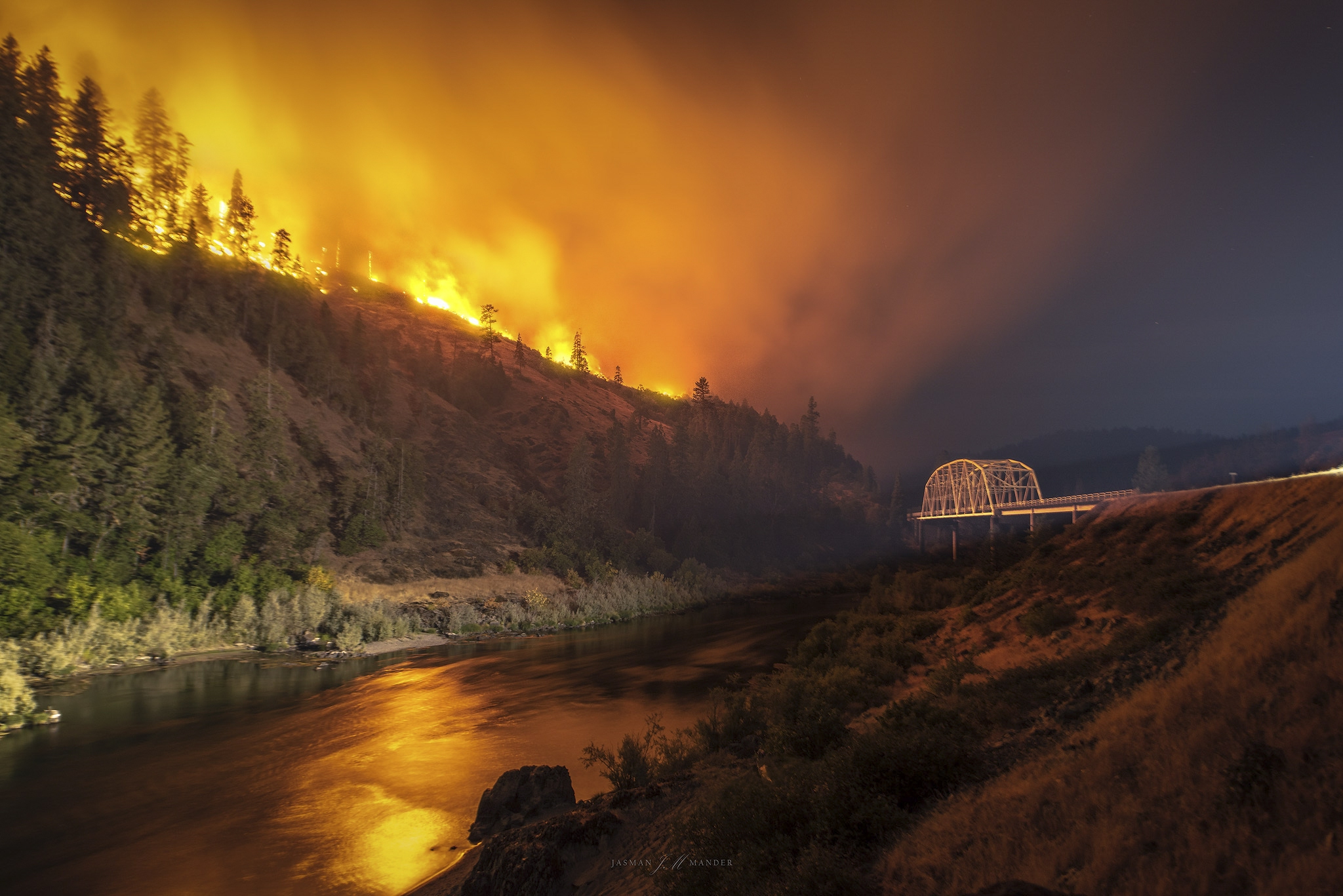Across western North America salmonid species are an important source of food and livelihoods, and carry strong cultural significance for local and Tribal communities. These species are a key component of ecosystem structure and nutrient flow. As wildfires increase in size and severity across the region, fire resilience has become vital for socio-ecological systems to thrive. Though fire is an integral ecological process, it poses challenges for the restorative management of salmonids, and maintaining their fire resilience is critical. Historically, efforts to restore dwindling salmonid populations and efforts to increase forest resilience to fire have been managed by distinct policies and agencies. A combined approach is urgently needed to address salmonid recovery and wildfire resilience in the face of climate change and corresponding wildfire intensity.
OUR APPROACH: To improve the health and resilience of salmonids, forests and the human communities that rely on them in wildfire-prone areas, this working group will combine research on forest management for wildfire resilience with salmonid restoration and apply this to local conservation efforts. The group will create a salmonid-fire-vegetation database to quantify fish-fire relationships, identify factors that support fish resilience to fire, and develop tools for integrating wildfire management with salmonid recovery. The group will also work to identify communities where managers can be engaged to adapt and apply this integrated framework to meet their needs.

- Develop support for planning both proactive (before fire) and reactive (following fire) management strategies to enhance salmonid resilience to fire.
- Create a shareable database of existing data on salmonids, fire history, vegetation and other landscape characteristics to facilitate rapid research progress.
- Quantify past responses of salmonids to fire in selected areas in the West.
- Synthesize best available science and knowledge to create tools, such as decision support systems or dichotomous keys, to help land managers prioritize and align fire management with salmonid needs.
- Catalyze continued collaboration and integration by identifying priorities for future research & management.
The Nature Conservancy
Columbia River Inter-Tribal Fish Commission
University of Washington
Colorado State University
The Nature Conservancy & University of Washington
The Nature Conservancy
Nez Perce Tribe
United States Forest Service
National Oceanic and Atmospheric Administration
The Nature Conservancy
The Nature Conservancy
The Nature Conservancy
Tulalip Tribes
United States Forest Service
The Nature Conservancy
Oregon State University
The Nature Conservancy
The Nature Conservancy
The Nature Conservancy